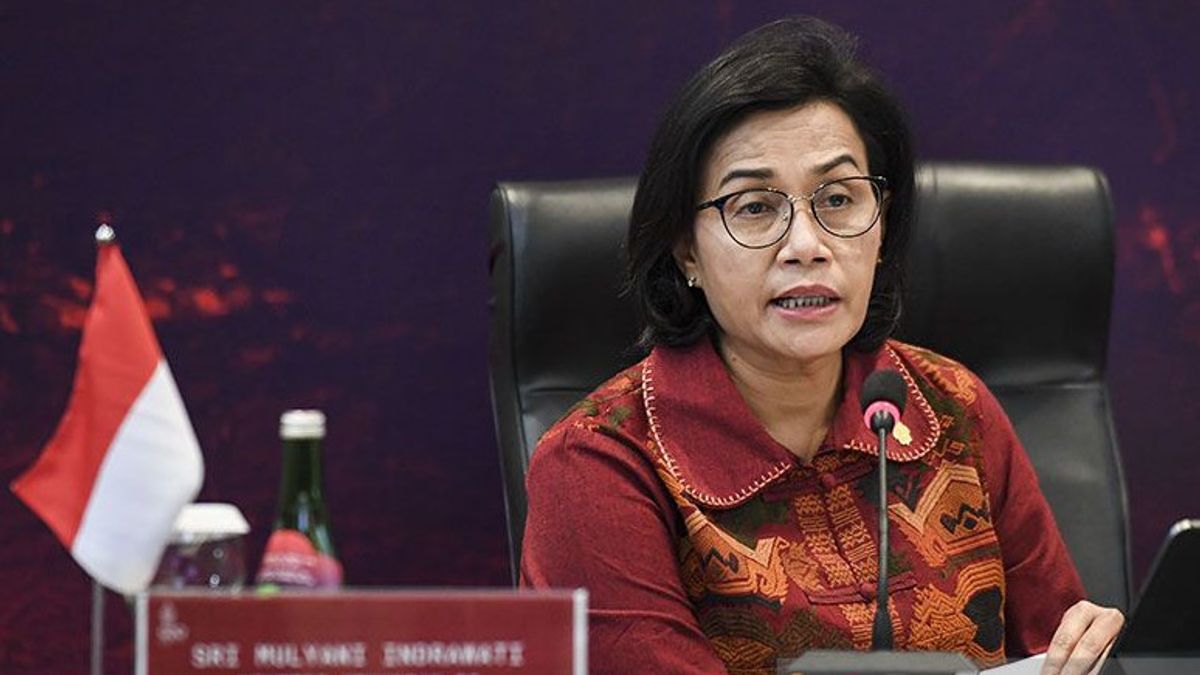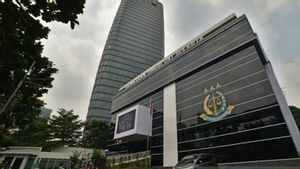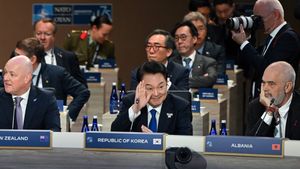JAKARTA - Minister of Finance (Menkeu) Sri Mulyani said collaboration at the global level such as at the G20 forum and regional cooperation in ASEAN needs to be strengthened and consistently continued.
This was revealed in a series of meetings between the Minister of Finance and the Governors of the ASEAN Central Bank on 7-8 April 2022, which this year is chaired by Cambodia.
"Current development challenges cannot be handled by the state individually," Sri Mulyani said in an official statement received in Jakarta, reported by Antara, Sunday, April 10.
ASEAN is a region that has resilience in the midst of a pandemic and Indonesia's contribution to this positive achievement can be seen from ASEAN's positive economic growth of 2.9 percent in 2021, along with that Indonesia was able to grow positively of 3.69 percent last year.
Both ASEAN and Indonesia also endured a deep contraction in 2020 where most regions and countries experienced heavier contractions, so this is inseparable from the government's policy response in handling the pandemic and economic recovery.
Sri Mulyani also conveyed that there were several Indonesian strategies that could serve as examples for ASEAN countries, namely widening the deficit above three percent of Gross Domestic Product (GDP) for three years after the discipline was below it for the last 15 years.
Then, the flexibility of the APBN so that it can be responsive to funding needs that are very priority during a pandemic, namely health and social care, as well as mutual cooperation or burden sharing with other parties such as local governments related to the implementation of social assistance programs and Bank Indonesia related to funding for handling the pandemic.
In the context of mobilizing tax revenues, which is a challenge for the developing ASEAN region, the Minister of Finance said that tax policy is not directed at revenue but relaxation during the pandemic. However, in the future as the recovery progresses, the Government of Indonesia will design fiscal consolidation carefully and measured so as not to disrupt the economic recovery.
On the other hand, Indonesia's commitment to climate control is also getting stronger, even Indonesia and the Asian Development Bank (ADB) are designing the Energy Transition Mechanism (ETM) to prematurely retire coal-fired power plants and shift them to New and Renewable Energy (EBT).
He hopes that the financing mix of the Multilateral Development Bank, the private sector, bilateral partners, and others can further support a just and affordable transition.
Regarding digitalization in the financial services sector, along with current technological developments, ASEAN is expected to be able to adapt to the development of digital financial services, ranging from the technology used to the development of new financial products.
In addition, ASEAN financial cooperation to integrate finance in the region also needs to be strengthened by exchanging views on related regulations and better coordination among ASEAN working committees.
The former Managing Director of the World Bank also appreciated the progress on the financial services liberalization initiative, including the cooperation negotiations between ASEAN and Australia and New Zealand.
"The potential of integration and cooperation between these countries is expected to have a significant impact on post-pandemic recovery in the region," added Sri Mulyani. and the Governor of Bank Indonesia expressed readiness to lead the ASEAN annual forum and meeting in 2023.
Indonesia's preparations will be directed at addressing issues and challenges facing ASEAN in order to promote joint and strong recovery in the region.
The English, Chinese, Japanese, Arabic, and French versions are automatically generated by the AI. So there may still be inaccuracies in translating, please always see Indonesian as our main language. (system supported by DigitalSiber.id)













